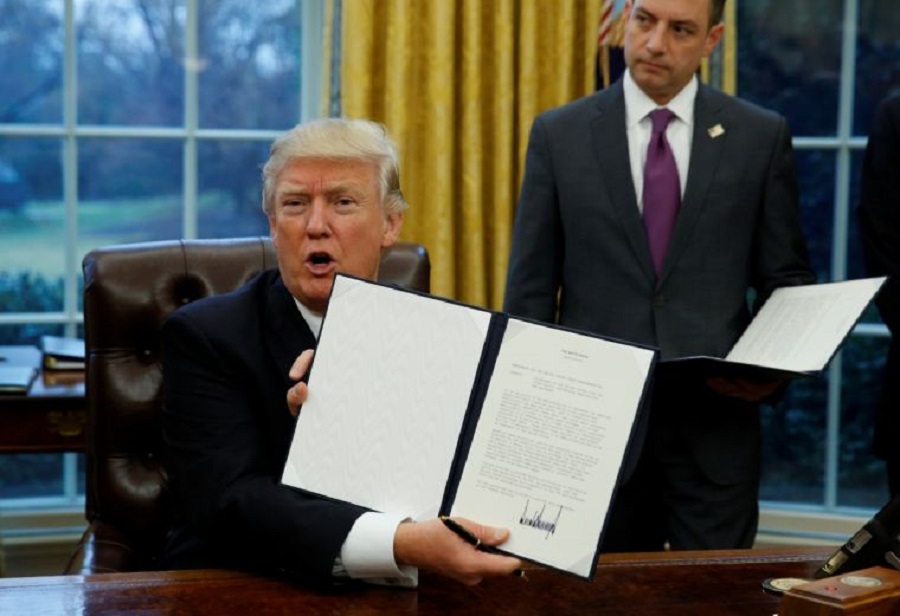As promised in 2016 Presidential Campaign, the US President Donald Trump pulled out of Trans-Pacific trade partnership with future goals of negotiating one-on-one deals with various economies in the world. Although some might see this step as a fulfillment of a core campaign promise, it might be disastrous for the US economy in the long run. Zeke Miller of Time Magazine suggested that pulling out of Trans-Pacific Partnership means not taking the required help to win China.
Since the establishment of 12-nation accord by both Bush and Obama administration, neither Hillary nor Donald had been purely supportive. Although Clinton served Obama as his Secretary of State, she had a different stand on trans-pacific deals. Interestingly, the adversaries Clinton and Trump seemed to agree on this. They argued that the deals were not sufficiently assuring to the US labor market. Hence, it’s plausible to say that either of their presidencies would get rid of Trans-Pacific.
After signing the appeal, Trump said, “A great thing for the American worker we just did.” He added, “We’re going to stop the ridiculous trade deals that have taken everybody out of our country and taken companies out of our country.” While some Republicans such as John McCain have been hostile to such moves, Paul Ryan apparently praised Trump in a speech. He said, “President Trump is wasting no time acting on his promises.”
Likewise, a domestic policy expert, Lanhee Chen, said, “It’s going to be very difficult to fight that fight. Trump is reflecting a trend that has been apparent for many years.” On the same note, Harry Kazianis, National Interest think tank director, analysed, “This could include multiple bilateral trade agreements. Japan, Taiwan and Vietnam should be approached first as they are key to any new Asia strategy that President Trump will enact.”
More importantly, the press conference also revealed that the Trump administration will take full authority of whether to terminate any one-on-one deals ‘if somebody misbehaves’.




